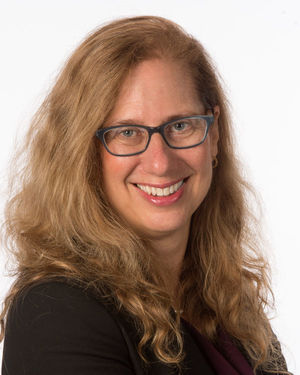
- University of Notre Dame
- Associate Professor
- Residential Fellow (2016-2017)
- “Service Before Self: Organization, Cultural Conflict, and Religion at the U.S. Air Force Academy”
Mary Ellen Konieczny is Associate Professor of Sociology and Faculty Fellow at the Center for the Study of Religion and Society at the University of Notre Dame. She specializes in issues of religio-cultural conflict and political polarization in the United States, and more recently also in East Africa. Her scholarship is focused primarily on religion, culture, politics, family, and social theory.
Professor Konieczny is the author of The Spirit’s Tether: Family, Work, and Religion among American Catholics (2013), and the lead editor of Polarization in the U.S. Catholic Church: Naming the Wounds, Beginning to Heal (2016). She is an author or co-author of scholarly publications in journals including the Journal for the Scientific Study of Religion, Journal of the American Academy of Religion, and Sociology of Religion. She has served as an associate editor for the American Journal of Sociology and presently serves on the editorial boards of the American Sociological Association’s Rose Book Series and the Journal for the Scientific Study of Religion.
Professor Konieczny’s research has been supported by grants and fellowships from the Woodrow Wilson Foundation, the Louisville Institute, and the University of Chicago. She has been a fellow at the Cushwa Center for the Study of American Catholicism at Notre Dame and the Yale Institute for the Advanced Study of Religion.
Publications
-
Religion, Secular Humanism, and Atheism: Multi-Institutional Politics and the USAFA Cadets' Freethinkers Group
Journal for the Scientific Study of Religion, 2017
The recent emergence of atheist movements despite marginalization and distrust by a majority of Americans has been explained as a successful deployment of identity politics, but scholars have less often considered the importance of how identity and power intersect with political opportunity occurring within organizational and religious fields. Analyzing the case of the U.S. Air Force Academy (USAFA) Cadet Freethinkers Group, we demonstrate that although it encountered opportunity in the organizational shock of the 2004 USAFA proselytism controversy, this opportunity was not a blank check, but instead afforded some possibilities for action and not others. Freethinkers’ actions to secure official recognition were limited by (1) their low placement in the chain of command and (2) a collective identity inclusive of secular humanism and atheism, which did not produce enough unity to take collective actions risking punishment, and created ambiguity vis-à-vis religion that allowed USAFA administrators to accept or deny their institutional membership claims through appeal, respectively, to functional or substantive definitions of religion.